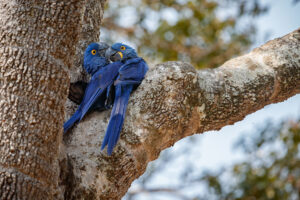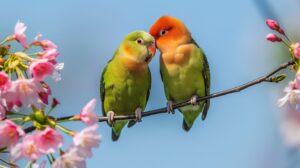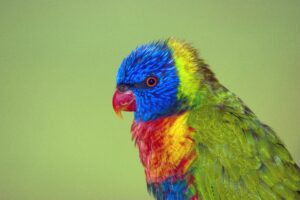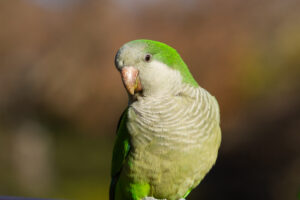If you’ve welcomed one of these magnificent rainbow-colored companions into your home—or are considering doing so—you’ve likely wondered: how often do macaws eat? These intelligent, social parrots require specific feeding regimens to thrive in captivity, and understanding their nutritional needs is essential for their long-term health and wellbeing.
Macaws are among the most spectacular members of the parrot family, with their brilliant plumage, impressive size, and remarkable longevity—many live 50+ years with proper care. Their dietary needs are just as specific as their housing and social requirements, and feeding them appropriately is one of the most important aspects of responsible macaw ownership.
In this comprehensive guide, we’ll explore everything you need to know about how often do macaws eat, what constitutes a healthy diet, how feeding schedules change throughout their lives, and the critical feeding mistakes many well-intentioned owners make. Whether you have a Blue and Gold, Scarlet, Hyacinth, or any other macaw species, this information will help you provide optimal nutrition for your colorful companion.
Understanding Natural Macaw Feeding Behaviors
Before diving into captive feeding schedules, it’s helpful to understand how often do macaws eat in their natural habitat, as this provides important context for their nutritional needs in our homes.
Wild Feeding Patterns
In the tropical forests of Central and South America, macaws typically follow this feeding pattern:
- Morning feeding: Wild macaws are most active in early morning hours, leaving their roosting sites at dawn to seek their first meal
- Midday rest: During the hottest part of the day, they often rest and socialize
- Afternoon feeding: A second major feeding session occurs in late afternoon before returning to roost
- Continuous foraging: Throughout active periods, they opportunistically forage as they travel
Dr. James Rodriguez, an avian veterinarian specializing in exotic birds, explains: “In the wild, macaws don’t sit down to distinct ‘meals’ as we might think of them. They’re constantly foraging throughout their active periods, finding nuts, fruits, seeds, and occasionally insects or small bits of clay from riverbanks. This continuous feeding pattern is important to consider when developing feeding schedules for pet macaws.“
Natural Diet Components
The wild macaw diet includes:
- Nuts and seeds: Including palm nuts, which many macaws are specially adapted to crack
- Fresh fruits: Tropical varieties with high moisture content
- Berries and vegetation: Providing essential vitamins and minerals
- Clay deposits: Called “clay licks,” these provide essential minerals and help neutralize toxins
This varied, natural diet provides important clues about what do macaws eat daily in captivity to maintain optimal health.
How Often Do Macaws Eat in Captivity?
For pet macaws, feeding schedules should balance their natural feeding behaviors with the practicalities of captive care. Let’s address the question: how often do macaws eat in a day?
Standard Adult Macaw Feeding Schedule
Most avian experts recommend the following feeding schedule for healthy adult macaws:
- Morning meal (7-9 AM): Fresh food mixture including fruits, vegetables, and limited nuts
- Midday check (12-2 PM): Refresh water and provide a small supplementary feeding if needed
- Evening meal (4-6 PM): Primary pellet portion and additional fresh foods
- Constant access: Quality pellets available throughout the day for supplementary feeding
Experienced macaw owner Maria Chen shares her approach: “I provide my Blue and Gold Macaw, Rico, with his fresh food morning and evening, but I always ensure he has access to some high-quality pellets throughout the day. This mimics the natural foraging behavior while ensuring he gets consistent nutrition.“
Factors Affecting Feeding Frequency
Several factors may influence how often macaws need to eat:
- Species size: Larger species like Hyacinth macaws may consume more food less frequently
- Individual metabolism: Some birds naturally eat more often than others
- Activity level: More active birds may require more frequent feeding
- Health status: Birds recovering from illness may need specialized feeding schedules
- Age: Growing juveniles need more frequent feeding than adults
- Breeding status: Breeding birds have increased nutritional demands
Understanding these variables helps owners develop appropriate feeding schedules for their specific birds.
Specialized Feeding Schedules by Age
Macaws’ nutritional needs change dramatically throughout their lives, affecting how often they should eat.
How Often Do Baby Macaws Eat?
Baby macaws require very frequent feeding:
- Newly hatched to 1 week: Every 2 hours around the clock (8-10 feedings daily)
- 1-2 weeks: Every 3 hours around the clock (6-8 feedings daily)
- 2-4 weeks: Every 4 hours, with a longer overnight break (5-6 feedings daily)
- 4-8 weeks: Every 4-5 hours during daylight (4-5 feedings daily)
- 8-12 weeks: 3-4 times daily as they begin weaning
Professional breeder Thomas Wilson emphasizes: “Hand-feeding baby macaws is an intensive process requiring precise temperature, consistency, and technique. It’s not recommended for inexperienced owners, as improper feeding can lead to crop burns, aspiration, or nutritional deficiencies that can be fatal or cause lifelong health issues.“
Juvenile Macaw Feeding Frequency
As young macaws continue growing, their feeding schedule gradually transitions:
- 3-6 months: 3 main meals daily with constant access to quality pellets
- 6-12 months: 2-3 meals daily with supplementary foraging opportunities
- 1-3 years: Transition to adult feeding schedule while accounting for growth needs
During this period, juveniles require higher protein content and more calories per pound of body weight than adults.
Species-Specific Feeding Considerations
Different macaw species have slightly different nutritional requirements based on their natural diets and metabolic needs.
How Often Do Blue Macaws Eat?
The term “blue macaws” encompasses several species, including the Blue and Gold, Blue-throated, and Hyacinth. Generally speaking:
- Blue and Gold Macaws: Typically eat 2-3 times daily, consuming about 10-15% of their body weight
- Blue-throated Macaws: Similar to Blue and Gold, requiring 2-3 daily feedings
- Lear’s Macaws: Need carefully monitored fat intake with 2-3 daily feedings
Blue macaw owner David Thompson notes: “My Blue and Gold, Charlie, thrives on a schedule of two main meals—morning and evening—with pellets available for snacking. I’ve noticed he’s particularly hungry in the morning, eating most enthusiastically at his first meal.“
How Often Do Hyacinth Macaws Eat?
Hyacinth macaws, the largest of all parrots, have specialized dietary needs:
- Typically eat 2 main meals daily
- Require higher fat content than other macaws
- Need more palm nuts or similar high-fat nuts in their diet
- Consume approximately 200-300 grams of food daily
- Benefit from having some food always available for supplementary feeding
Hyacinth specialist Dr. Amanda Lopez explains: “Hyacinths have evolved to consume palm nuts in the wild, which requires tremendous beak strength and provides significant calories. In captivity, we mimic this with nuts like Brazil nuts, macadamias, and walnuts, though these should be limited to prevent obesity while still meeting their higher fat requirements.“
What Do Macaws Eat Daily: Creating a Balanced Diet
Understanding what do macaws eat daily is just as important as knowing how often to feed them. A balanced macaw diet includes:
Pellets: The Nutritional Foundation
High-quality formulated pellets should make up approximately 50-60% of the diet:
- Select appropriate size: Match pellet size to your macaw species
- Quality matters: Choose brands specifically formulated for macaws/large parrots
- Avoid artificial colors: Natural pellets are preferable
- Constant availability: While main meals are scheduled, pellets should be accessible throughout the day
Fresh Foods: Essential Variety
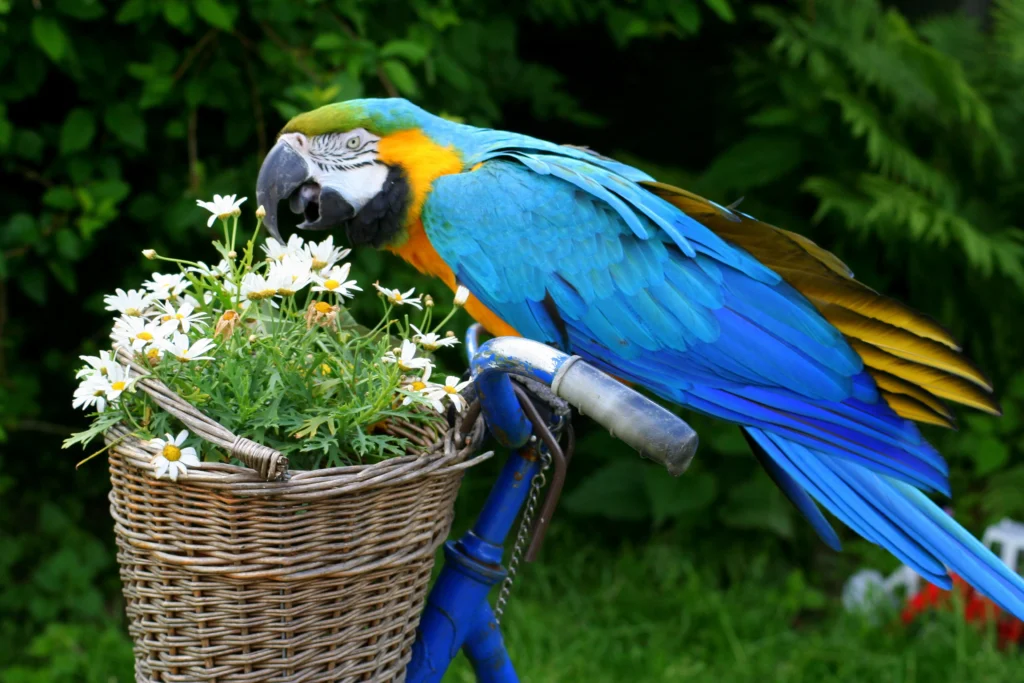
Fresh foods should constitute 30-40% of the diet:
- Vegetables: Dark leafy greens (kale, spinach, collards), carrots, sweet potatoes, bell peppers, broccoli
- Fruits (limited to 10-15% of diet): Berries, papaya, mango, banana, apple (no seeds)
- Limited nuts and seeds: Almonds, walnuts, Brazil nuts, sunflower seeds as occasional treats
- Sprouted seeds: More nutritious than dry seeds
- Cooked grains and legumes: Quinoa, brown rice, lentils, chickpeas
Foods to Avoid
Several common foods are toxic to macaws and should never be offered:
- Avocado
- Chocolate
- Caffeine
- Alcohol
- Onions and garlic
- High-salt foods
- Foods with added sugar
- Apple seeds and fruit pits
The Best Diet for Macaws: Key Nutritional Components
When planning the best diet for macaws, ensure it contains these essential nutritional elements:
Proteins
Macaws require quality protein for muscle maintenance, feather development, and overall health:
- Recommended sources: Cooked legumes, limited nuts, sprouted seeds, occasional cooked egg
- Protein content: Should constitute approximately 15-20% of the diet
Carbohydrates
Carbohydrates provide energy for these active birds:
- Complex carbohydrates: Whole grains, starchy vegetables
- Limited simple carbohydrates: Moderate fruit intake
Fats
Healthy fats are essential but should be carefully monitored:
- Essential fatty acids: Necessary for skin, feather, and overall health
- Sources: Nuts (especially for Hyacinths), some seeds, limited healthy oils
Vitamins and Minerals
These micronutrients support overall health:
- Vitamin A: Crucial for respiratory health and immune function
- Calcium: Essential for bone health, especially in breeding females
- Vitamin D3: Necessary for calcium absorption (exposure to unfiltered sunlight helps natural production)
- Vitamin E: Supports reproductive health and feather condition
Avian nutritionist Dr. Sarah Chen emphasizes: “One of the most common nutritional deficiencies I see in macaws is vitamin A deficiency, which can cause respiratory problems, poor feather quality, and increased susceptibility to infection. Ensuring dark leafy greens, orange vegetables, and proper pellets in the diet helps prevent this common issue.“
Macaw Feeding Schedule: Creating a Routine
Establishing a consistent macaw feeding schedule helps ensure proper nutrition and supports their psychological wellbeing.
Sample Daily Schedule
Here’s a sample feeding schedule that works well for many macaw owners:
Morning (7-8 AM):
- Fresh food mixture (fruits, vegetables, limited nuts)
- Fresh water
- Remove uneaten fresh food after 1-2 hours
Midday (12-1 PM):
- Check water and replenish if needed
- Provide foraging toy with small healthy treats
- Ensure pellets are available
Evening (5-6 PM):
- Main pellet portion
- Second fresh food serving
- Final water change
- Remove fresh food before bedtime
Consistency in timing helps establish healthy eating patterns and supports digestive health.
How Often Do Macaws Drink Water?
Hydration is just as important as food for macaw health. Let’s address the question: how often do macaws drink water?
Water Requirements
Macaws should have constant access to fresh, clean water:
- Water consumption: Varies based on diet, size, and environmental conditions
- Typical intake: Approximately 5% of their body weight daily
- Water changes: Minimum twice daily, more in hot weather
- Monitoring: Decreased water consumption can be an early illness indicator
Water Presentation
How you provide water affects consumption:
- Multiple sources: Offer water in both the cage and play areas
- Bowl size: Deep enough for drinking but not bathing
- Material: Stainless steel or ceramic preferred over plastic
- Positioning: Away from food to prevent contamination
- Water quality: Filtered recommended over tap water in some areas
Macaw owner Lisa Johnson notes: “I’ve noticed my Scarlet Macaw, Ruby, drinks much more frequently when I provide water in a clear glass bowl rather than an opaque one. She also seems to prefer room temperature water to cold.“
5 Common Macaw Feeding Mistakes to Avoid
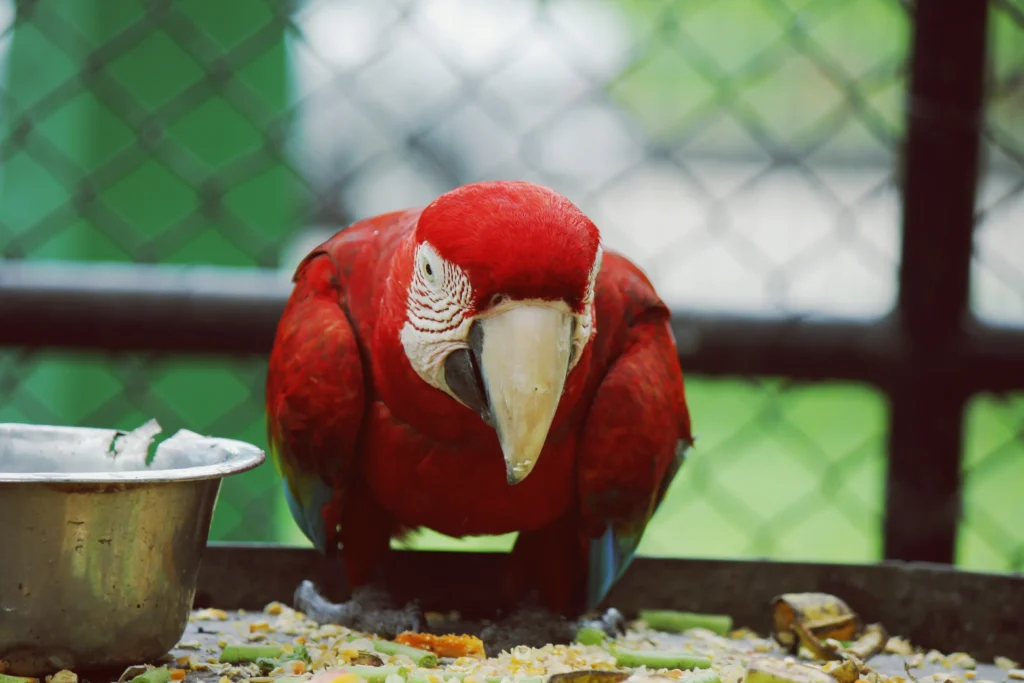
Even well-intentioned owners often make these critical feeding mistakes:
1. Seed-Based Diets
The Mistake: Relying primarily on seed mixes for nutrition.
The Problem: Seeds are high in fat and deficient in many essential nutrients, particularly vitamin A, calcium, and protein. An all-seed diet leads to nutritional deficiencies, liver disease, and shortened lifespan.
The Solution: Transition gradually to a pellet-based diet supplemented with fresh foods. Limit seeds to occasional treats or use as training rewards.
2. Overfeeding Nuts and Fatty Foods
The Mistake: Providing too many nuts, sunflower seeds, and other high-fat foods.
The Problem: Macaws love fatty foods and will preferentially eat them, but excessive fat consumption leads to obesity, fatty liver disease, and related health problems.
The Solution: Limit nuts to 2-3 per day for large macaws (fewer for smaller species). Use them strategically for training or as special treats rather than regular diet components.
3. Insufficient Fresh Foods
The Mistake: Relying solely on pellets without fresh components.
The Problem: While pellets provide balanced nutrition, they lack certain phytonutrients found in fresh foods. Additionally, fresh foods provide psychological enrichment and encourage natural foraging behaviors.
The Solution: Provide a variety of fresh vegetables and limited fruits daily, offering different textures and colors to stimulate interest.
4. Poor Food Hygiene
The Mistake: Leaving fresh food in the cage too long or not properly cleaning food dishes.
The Problem: Spoiled food can harbor harmful bacteria, leading to digestive upset or more serious infections. In warm environments, fresh food can spoil within hours.
The Solution: Remove uneaten fresh food after 1-2 hours. Clean food dishes daily with bird-safe detergent and rinse thoroughly.
5. Inconsistent Feeding Schedule
The Mistake: Feeding at irregular times or changing diet abruptly.
The Problem: Macaws thrive on routine. Irregular feeding can cause stress and digestive issues. Sudden diet changes can lead to food refusal and nutritional deficiencies.
The Solution: Establish a consistent feeding schedule that works with your lifestyle. Make any diet changes gradually over several weeks.
Avian veterinarian Dr. Michael Fernandez warns: “I’ve seen otherwise healthy macaws develop serious health issues stemming directly from these common feeding mistakes. Particularly concerning is seed addiction, where birds become so accustomed to high-fat seeds that they refuse healthier options. Prevention through proper feeding from the start is much easier than trying to correct these issues later.“
Macaw Food List: Healthy Options to Consider

This comprehensive macaw food list provides a variety of nutritious options to include in your bird’s diet:
Vegetables (Daily)
- Kale
- Spinach (in moderation due to oxalates)
- Swiss chard
- Collard greens
- Carrot
- Sweet potato (cooked)
- Bell peppers
- Broccoli
- Pumpkin
- Squash
- Zucchini
- Green beans
Fruits (Limited)
- Berries (strawberries, blueberries)
- Papaya
- Mango
- Banana (in moderation)
- Apple (no seeds)
- Pomegranate
- Melon
- Pineapple
- Coconut (fresh, limited)
Grains & Legumes (Regular)
- Quinoa (cooked)
- Brown rice (cooked)
- Oats (cooked)
- Barley (cooked)
- Lentils (cooked)
- Chickpeas (cooked)
- Black beans (cooked)
Nuts & Seeds (Limited)
- Almonds (2-3 per day)
- Walnuts (1-2 per day)
- Brazil nuts (especially for Hyacinths, 1-2 per day)
- Hazelnuts
- Pistachios (unsalted)
- Chia seeds (sprinkled on food)
- Flax seeds (ground)
- Pumpkin seeds
- Sprouted sunflower seeds
Protein Sources (Occasional)
- Cooked egg (well-cooked, once weekly)
- Small amounts of plain cooked chicken (occasional)
- Plain yogurt (small amounts)
- Cooked legumes
Macaw nutrition specialist Amanda Wilson recommends: “Create a ‘chop’ by finely dicing a variety of vegetables, cooking some components like sweet potatoes, and freezing in portions. This ensures variety and makes daily preparation easier. I recommend preparing a different mix every few weeks to provide nutritional variety.“
Special Circumstances That Affect Feeding Frequency
Certain situations may require adjustments to your macaw’s regular feeding schedule:
Illness or Recovery
Sick birds often need modified feeding approaches:
- More frequent, smaller meals
- Easily digestible foods
- Possible supplementation with avian electrolyte solutions
- Hand-feeding may be necessary in severe cases
- Follow veterinary nutritional recommendations
Breeding Birds
Breeding pairs have increased nutritional needs:
- Higher protein requirements
- Additional calcium for females
- More frequent feeding opportunities
- Specialized breeding bird supplements
Elderly Macaws
Senior birds may need feeding adjustments:
- Softer foods if beak strength diminishes
- Easier-to-reach food placement
- More frequent, smaller meals
- Potential supplementation for age-related issues
- Monitoring for weight changes
Avian geriatric specialist Dr. Rebecca Torres advises: “As macaws age, their metabolism and digestive efficiency often change. Many older birds benefit from having their vegetables lightly steamed for easier digestion, and their pellets softened with a small amount of warm water. Regular weight monitoring becomes even more crucial during the senior years.“
Monitoring Your Macaw’s Nutritional Health
Regular assessment helps ensure your feeding program is meeting your bird’s needs:
Weight Monitoring
- Weigh your macaw weekly at the same time of day
- Note subtle changes as they can indicate health issues
- Use a perch scale or train your bird to step onto a digital scale
- Keep a weight log to track patterns
Physical Indicators
Watch for these signs of good nutritional health:
- Bright, clear eyes
- Smooth, glossy feathers
- Clean, well-shaped beak
- Active, alert behavior
- Regular, well-formed droppings
- Healthy body condition (keel bone neither too prominent nor hidden)
When to Consult a Veterinarian
Seek professional guidance if you notice:
- Weight loss or gain exceeding 10% of body weight
- Consistent changes in appetite
- Changes in droppings (color, consistency, frequency)
- Lethargy or reduced interest in food
- Poor feather quality
- Beak abnormalities
Regular avian veterinary check-ups, typically recommended biannually, should include nutrition discussions and potential adjustments to your feeding protocol.
Conclusion: Finding the Right Balance
Answering the question how often do macaws eat isn’t one-size-fits-all. The ideal feeding schedule balances your bird’s specific nutritional needs with natural feeding behaviors. Most adult macaws thrive with two main daily meals plus constant access to quality pellets, but individual needs vary based on species, age, health status, and individual metabolism.
The best diet for macaws incorporates variety, balance, and consistency, focusing on quality ingredients provided on a reliable schedule. By avoiding common feeding mistakes and paying attention to your bird’s individual needs, you’ll help ensure your colorful companion enjoys optimal health throughout their long life.
Remember that dietary needs evolve, and regular consultation with an avian veterinarian helps you adjust your macaw feeding schedule as needed. With proper nutrition, your magnificent macaw can thrive for decades, rewarding your care with vibrant plumage, energetic behavior, and the unique bond that makes these intelligent birds such extraordinary companions.
FAQs About Macaw Feeding
Q: Can macaws eat food from my plate?
A: While macaws can safely consume many human foods, meals prepared for people often contain salt, spices, or other ingredients potentially harmful to birds. Plain, unseasoned foods like vegetables, fruits, and whole grains can be shared occasionally, but a dedicated macaw diet is always preferable for their primary nutrition.
Q: My macaw only wants to eat seeds. How can I introduce healthier foods?
A: Transitioning a “seed addict” requires patience. Mix a small amount of pellets with their seeds, gradually increasing the pellet ratio over several weeks. Try offering fresh foods first thing in the morning when they’re hungriest. Food that mimics their natural foraging (like leafy greens with stems they can hold) often encourages exploration. Persistence and consistency are key—sometimes it takes months for complete transition.
Q: Should I remove food overnight or leave it available?
A: Fresh foods should be removed after 1-2 hours to prevent spoilage. However, quality pellets can remain available overnight for occasional snacking, particularly important for birds that wake early. Water should always be available around the clock.
Q: How does seasonal change affect how often my macaw needs to eat?
A: Macaws may consume more calories during colder months when their bodies use energy for warmth. During hot weather, they may eat less but drink more water. Seasonal adjustments to portions rather than feeding frequency are typically sufficient to accommodate these natural variations.
Q: Are there differences in feeding requirements between wild and captive macaws?
A: Yes. Wild macaws expend more energy flying long distances and forage throughout the day. Captive macaws have different activity levels and energy requirements. While we aim to mimic natural feeding patterns, captive diets must be more nutritionally dense and carefully balanced to prevent obesity while meeting all nutritional needs within their more limited activity opportunities.





